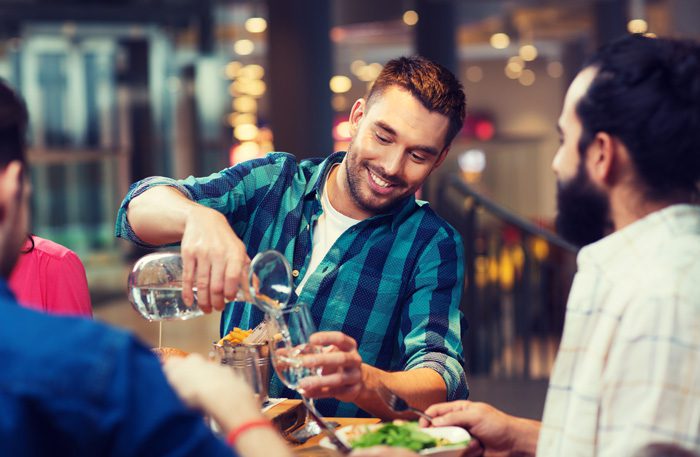 If you’re in recovery from alcohol addiction, it’s going to be impossible to avoid situations where other people are drinking all of the time.
If you’re in recovery from alcohol addiction, it’s going to be impossible to avoid situations where other people are drinking all of the time.
At some point, you will find yourself at a party, BBQ, work event, or wedding reception where you are being offered a drink. Your best option is to make a plan for these situations so you can respond with confidence.
How to Turn Down Alcohol in Social Settings Confidently
The following are suggestions for ways you can turn down alcohol and feel confident about socializing while sober. Keep in mind that most people who are hosting an event just want their guests to have a good time. They may be asking whether you would like a drink to ensure that you are being properly “looked after” and aren’t keeping track of who is drinking alcohol and who is sticking to soft drinks.
“No, thank you.”
If someone offered you something from a plate of finger foods and you didn’t want anything being offered, you would politely turn it down. No one would expect you to explain.
“No” is a complete answer. You aren’t required to say anything more than that if you don’t wish to. No one is owed an explanation of why you don’t want to drink alcohol.
Say you’re not drinking
If your host asks what you’re drinking, you may want to deal with the situation up front and say, “What do you have that’s alcohol-free?” or just ask for a soda or a fruit juice. Most people who are hosting events will offer a variety of drinks, including non-alcoholic options for guests who are choosing not to drink.
Keep a glass in your hand
One strategy you can use to stop fellow guests from encouraging you to visit the bar with them for an alcoholic drink is to keep a non-alcoholic drink with you during the event. When other people see you with a glass of sparkling water, club soda, or cranberry juice, they will think you already have a drink. No one needs to know that you aren’t drinking alcohol.
“I’m driving tonight.”
If you state that you’re not drinking alcohol because you are the designated driver for the evening, very few people will challenge your statement. No one wants to appear to encourage drinking and driving, which has the potential to lead to death or serious injury, as well as property damage.
“I’m on medication, so I’ll have to pass.”
Many people take medication for a number of medical conditions. A pharmacist may caution a patient not to drink until the prescription is completed.
“I’m on a diet and I can’t afford the empty calories.”
Just about everyone can appreciate someone who is “budgeting” their calories to avoid overeating on a particular occasion. Each alcoholic drink contains approximately 100-150 calories with no nutritional value.
“I’m in recovery from alcohol abuse.”
Depending on how comfortable you feel about the subject, you may decide to just tell your truth and be done with it. It doesn’t have to be an announcement that you share with everyone at the event.
You can say you’re in recovery matter-of-factly to your host or whoever is offering you an alcoholic drink. To avoid making the other person (and anyone within hearing distance) feel awkward, you could follow up with another sentence stating that you don’t have a problem with other people drinking. Then move on to say you’re fine for right now or you’d like a non-alcoholic drink of some type, etc.
Alcohol Addiction and Recovery Are Not Uncommon
If you decide to be open about your recovery status, you may be surprised at how supportive other people in your circle of acquaintances can be. Most people probably know someone (or know of someone) who either is struggling with an addiction or is in recovery.
You may be inspiring to someone else if you decide to be open about your recovery. You’re living proof that someone can get sober and live well. There are no rules, though, so take it on a case-by-case basis when you’re socializing with friends or colleagues in places where alcohol is being served. If you have some strategies prepared in advance, you’ll find this situation much easier to navigate.


